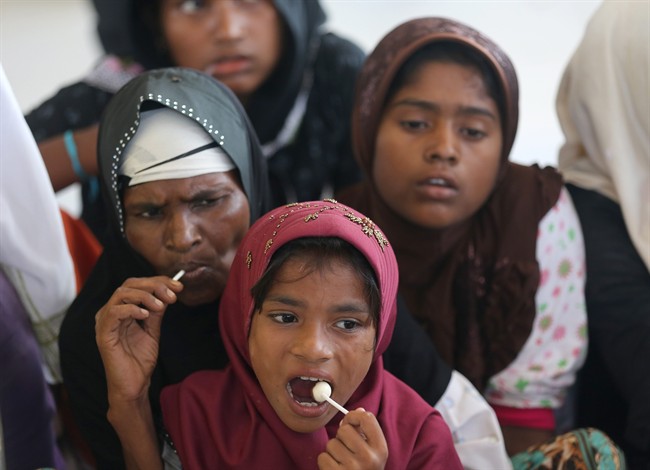The U.N. refugee agency is estimating that over 3,000 Rohingya and Bangladeshi migrants — or even more — could still be adrift in the Andaman Sea.

The exact numbers are not known, but the U.N. High Commissioner for Refugees says it triangulated reports in the media and other sources and estimates the current number could be over 3,000 — or more that no one knows about.
More than 3,000 Rohingya minority Muslims fleeing persecution in Myanmar and Bangladeshi economic migrants also on the boats with them have already landed in Indonesia and Malaysia, and over 100 in Thailand.
WATCH: The two countries are trying to solve the issue of thousands of migrants stranded off southeast Asia’s shores. The United Nations warns that pushing the boats away could create a crisis of “floating coffins”. Stuart Greer reports.
Only Rohingyas are being given a one-year temporary shelter while Bangladeshis face repatriation.
Malaysian navy chief Abdul Aziz Jaafar says four vessels are searching for any migrant ships that could still be out at sea, and three helicopters and three combat boats are on standby.
Meanwhile, the U.S. military says it is preparing to help countries in the region address the humanitarian crisis of the Rohingya migrants stranded at sea.
Pentagon spokesman Lt. Col. Jeffrey Pool told The Associated Press Thursday that the Department of Defense “is responding to this crisis and taking this seriously. We are preparing to stand up maritime aviation patrols throughout the region and working with local partners to help with this issue.”
It was the first indication that the U.S. military is ready to take direct role. Washington has been urging governments in the region to work together to conduct search and rescue and provide shelter to thousands of vulnerable migrants.
For decades, the Rohingya have suffered from state-sanctioned discrimination in majority-Buddhist Myanmar. Denied citizenship by national law, they are effectively stateless. In the last three years, attacks on Rohingya have left hundreds dead.

Comments